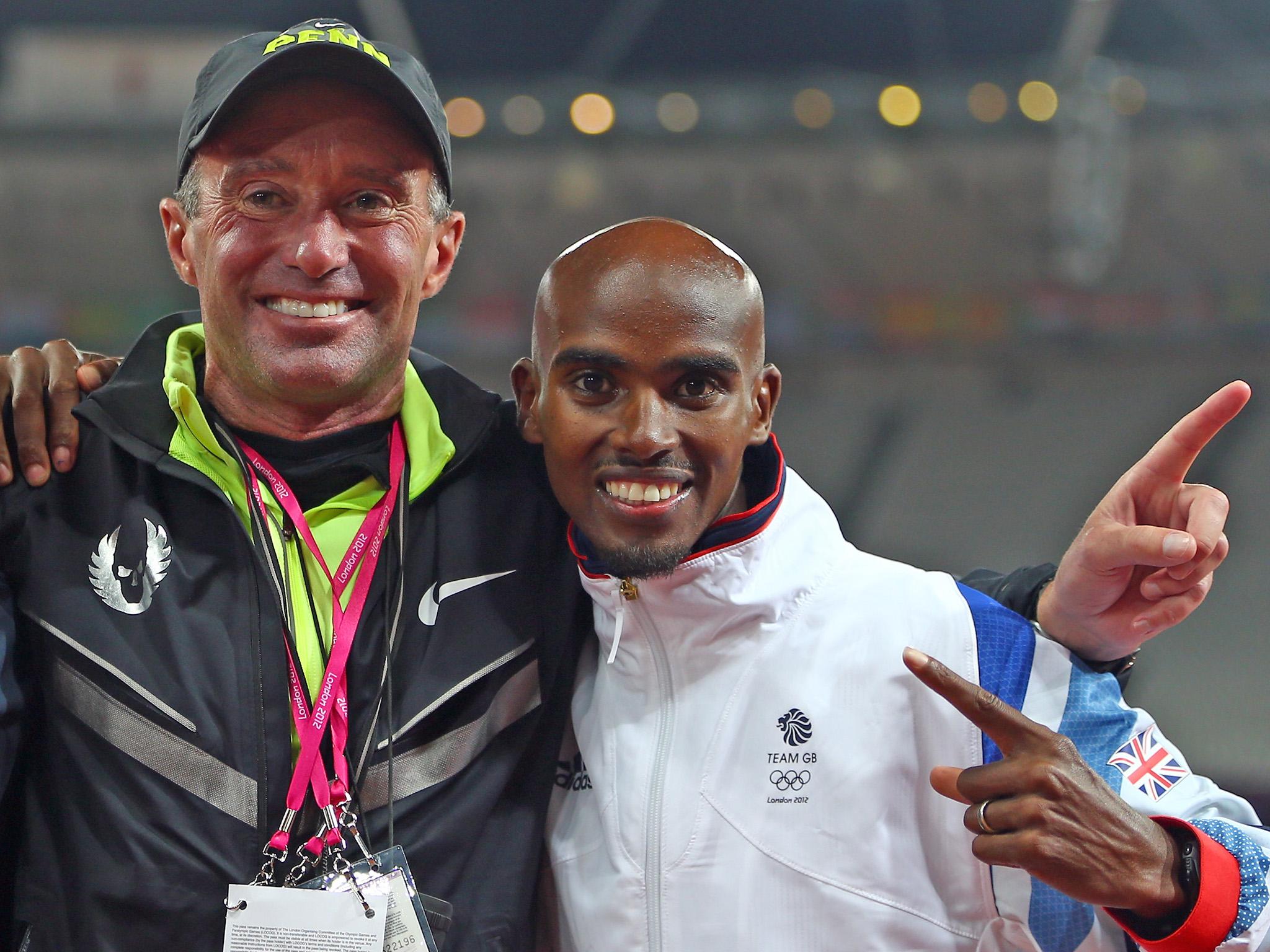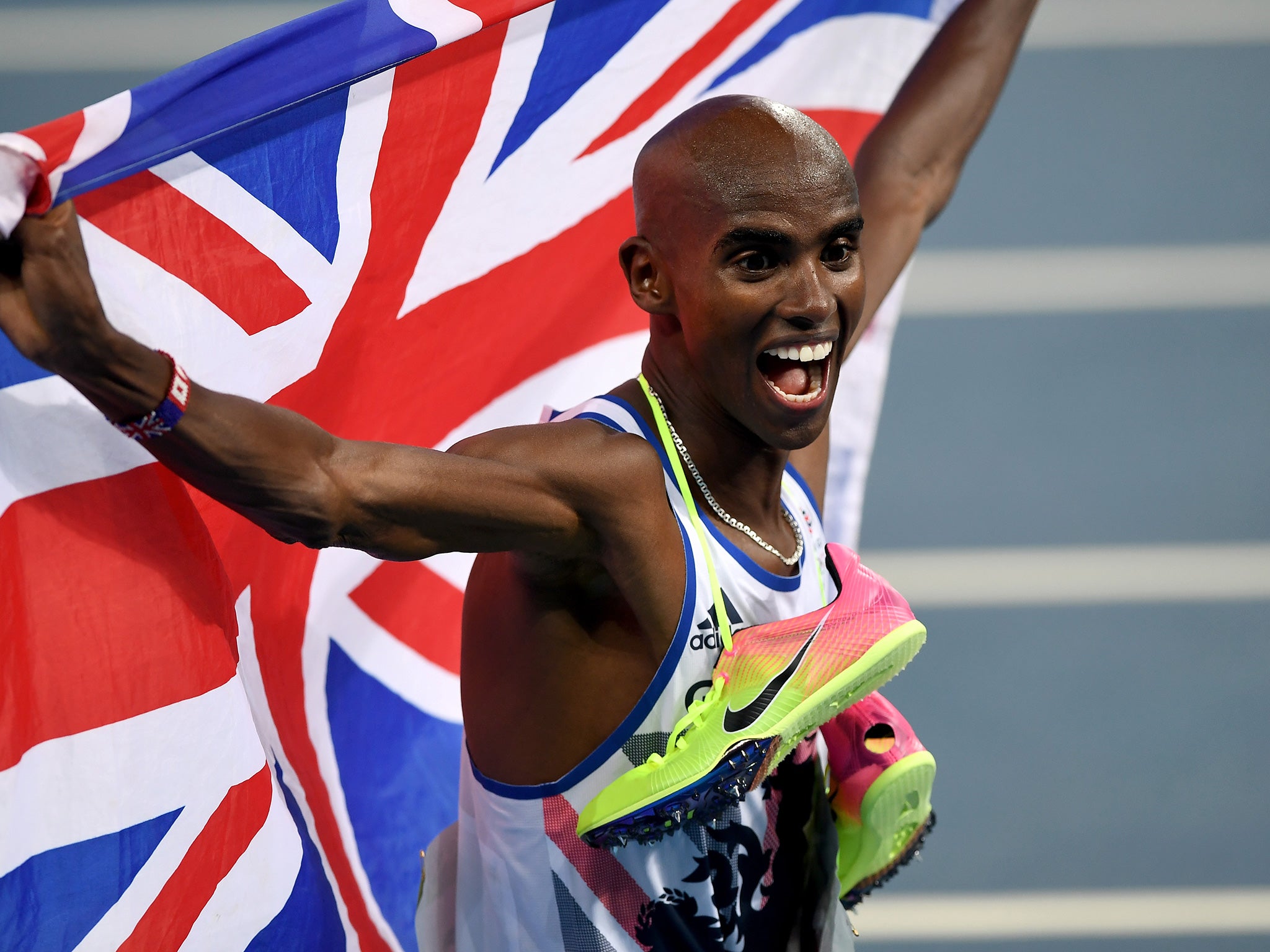Mo Farah's coach Alberto Salazar faces fresh doping allegations following leaked report
Coach alleged to have given Farah and others drugs when they had no medical need in report leaked by Russian hackers

Your support helps us to tell the story
From reproductive rights to climate change to Big Tech, The Independent is on the ground when the story is developing. Whether it's investigating the financials of Elon Musk's pro-Trump PAC or producing our latest documentary, 'The A Word', which shines a light on the American women fighting for reproductive rights, we know how important it is to parse out the facts from the messaging.
At such a critical moment in US history, we need reporters on the ground. Your donation allows us to keep sending journalists to speak to both sides of the story.
The Independent is trusted by Americans across the entire political spectrum. And unlike many other quality news outlets, we choose not to lock Americans out of our reporting and analysis with paywalls. We believe quality journalism should be available to everyone, paid for by those who can afford it.
Your support makes all the difference.Mo Farah's coach, Alberto Salazar, is facing fresh allegations of doping after a leaked report alleged he may have abused prescription medicines and used prohibited fusions to boost testosterone levels in his athletes.
A report by the United States Anti-Doping Agency (Usada) leaked to the Sunday Times reportedly suggested Mr Salazar, the head coach at the Nike Oregon Project in Portland gave athletes secret infusions of a research supplement based on the chemical L-carnitine.
Farah is not thought to have done anything wrong as he was only administered the supplement on one occasion.
Mr Salazar is even reported to have boasted to notorious drugs cheat Lance Armstrong about the “incredible” performance-boosting effects of the substance, saying in an email to the former racing cyclist: “Lance call me asap! We have tested it and it’s amazing.”
One athlete who was given a high dosage is meanwhile said to have concluded that it was as effective as illegal blood doping.
The report alleges the infusions given by intravenous drip to six top American runners training with Mr Salazar “almost certainly” broke anti-doping rules. L-carnitine, a naturally-produced amino acid prescribed as a supplement for heart and muscle disorders, is not a banned substance for athletes, but infusions of more than 50ml in the space of six hours are prohibited.
Written in March 2016 and reportedly leaked by Russian hacking group Fancy Bears, the report also alleges Usada found “substantial and compelling evidence” that Salazar and his team’s doctor, Jeffrey Brown, “conspired to collude together” to use “sometimes potentially unlawful” medical procedures in order to improve athletic performance.
Mr Brown lawyers refuted claims that he had used illegal drug infusions or supplements to bolster performance and said the use of L-carnitine was approved by Usada.
There is no indication in the The Sunday Times story as to whether these issues have been resolved since the report was written.
Farah was among athletes at the Nike Oregon Project in Portland who were given prescription drugs when they had no medical need, the report states, because Mr Salazar believed that the medications would cause them to run faster in competition.
Mr Salazar is reported to have taken “egregious risks” and abused prescription rules by persuading the athlete to take potentially dangerous doses of permitted vitamin D prescription drugs because he believed the medication would boost his testosterone levels. Farah’s British doctors intervened because they were concerned about the effects on his health, according to the report.
Mr Salazar was accused in 2015 by the BBC’s Panorama programme of violating several anti-doping rules, including using testosterone medication on Farah's training partner Galen Rupp when he was 16 in 2002. Farah gave his backing to the coach at the time of the allegations and said he would continue to work with him.

Farah's representatives have not responded to a request for comment from The Independent about the most recent allegations.
UK Athletics meanwhile told the The Sunday Times: “To our knowledge, all doses administered and methods of administration have been fully in accordance with Wada [World Anti-doping Agency] approved protocol and guidelines.”
Last year, Farah was questioned after winning Olympic 10,000m gold about why he has associations with three controversial coaches including Alberto Salazar, who was at the time being investigated by the US Anti-Doping Agency. He told reporters at the time: “I believe in clean sports and you do what you can. But you only control yourself.”
Join our commenting forum
Join thought-provoking conversations, follow other Independent readers and see their replies
Comments